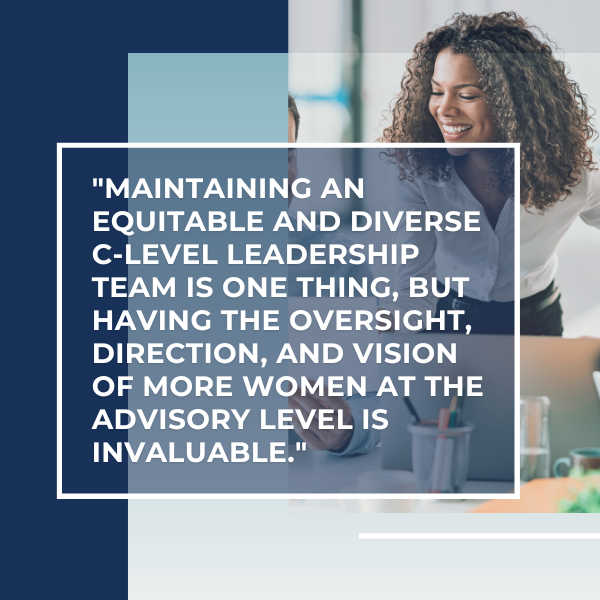Before I dive into the trends that will drive talent mobility, executive search activity, and leadership demand in 2023, I want to reflect on what we’ve accomplished this year in the Life Sciences Practice.

On average, our final candidate selected was identified in less than seven days. My team continues to stay busy as the economy slows, but our typical time to fill has slightly increased as clients have added additional interviews and slowed their decision-making processes. In the past two years, we have closed all but one search in under 60 days. This year that number has risen as travel has increased and interview scheduling has taken longer. Many clients are also taking more time to decide on their final candidates due to the need to negotiate more comprehensive compensation packages with increased flexibility.


The average number of interview rounds was roughly seven. When working with emerging companies and investors, finding and appointing the best leadership during your first attempt is a non-negotiable. We aligned and worked closer than ever with our clients to assure that the right industry leaders were brought to the table and methodically assessed for fit, experience, background, leadership style, and more, resulting in incredibly high placement and retention rates.
With another successful year for the practice behind us, we are very excited to move into 2023. With that being said, here are some of the key trends and influences we see driving the war for talent in life sciences.
Ophthalmology Continues to Grow Through PE and VC Deals
Showcase a strategic and change-oriented approach to leadership.
Build teams of high-performers that will deliver results.
Drive growth in business’ revenue, operations, and profitability – with a proven track record of success.
Design and implement organizational systems that are impactful.
Understand organizational cultures and deconstruct silos across organizations.
Board-Level Demand for Women Directors Remains High as Deals Continue to Close
One of the most interesting takeaways from AAO 2022 was that the interest in board roles is still incredibly high, specifically for women directors. As PE deals continue to close in ophthalmology, strategics, and start-ups, the appetite for appointing women directors at the C-suite and board levels is unrivaled. Maintaining an equitable and diverse C-level leadership team is one thing, but having the oversight, direction, and vision of more women at the advisory level is invaluable. Women board-level talent will remain minimal in 2023. Yet, as more segments of the life sciences market continue to overlap, integrate, and merge, investors and companies will need to search for women and minority candidates beyond their immediate talent pools.

The Great Resignation Has Disrupted the Talent Landscape at Every Level
While the “quiet quitting” trend makes its way through junior teams, the “Great Reshuffle” has left massive vacancies and skills gaps at the Director level. Distrust has become the new norm within employer-employee relationships as well as the candidate experience. These unexpected outcomes and continued shifts towards unpredictability will impact the C-Suite as well. Employers will remain concerned with retaining key talent but will also be faced with unforeseen departures – such as a Chief Financial Officer leaving her post to write a book on working with PE firms or a Chief Executive Officer leaving for “one last big deal.” The talent market will undoubtedly begin to level out in 2023 – but we will continue to see scarcity and uncertainty for the next few quarters.
You’re Losing the Talent War If You Don’t Offer Hybrid Work

We work on searches and placements from Vice President to C-level, and what we are hearing from top performers and candidates alike is that hybrid or remote work are at the top of their lists of needs. If you require leadership to be in-office on a regular basis, you are already at a disadvantage for attracting new and fresh talent. We will continue to hear candidates citing flexible work arrangements as the top perk they are looking for. To combat the talent shortage, life sciences organizations will need to take a serious look at why they are losing talent and are unable to attract the right talent. Chances are that a lack of flexibility, remote roles, and hybrid work may be central to all of this.
The Economy Has Made Passive Talent More Risk Averse and Created Demand for Interim Leadership
In 2023, passive talent will be harder to attract as candidates’ risk tolerance-levels remain reduced over economic concerns and inflation. Companies will potentially see an increased number of candidates accepting roles and subsequently getting “cold feet,” backing out at the last minute. As we move into 2023 and interest rates begin to level off, market-related uncertainty will subside and candidate mobility levels will return to normal. With less assurance of the future, more companies will turn to fractional, interim, or residency leadership solutions to fill their critical roles. Interim talent will allow life sciences and VC firms to engage the right leadership talent short-term, without committing to the headcount. Additionally, interim talent will continue to grow in popularity as an alternative solution to the talent shortage.
With most signs of the economy still strong, we continue to book searches for newly approved leadership roles and build talent where new skills are in demand.
Looking ahead to 2023, the best news I continue to hear from leaders and clients is that our recession will not be as deep or harmful as we initially anticipated, and it will have a smaller impact compared to past recessions. With most signs of the economy still strong, we continue to book searches for newly approved leadership roles and build talent where new skills are in demand. Thank you for your support, friendship, and partnership over the last year. As always, I very much appreciate it, and you.
Jessica and I love hearing from our clients, candidates, and friends. Remember that a strong relationship with a trusted search advisor is a must for any senior leader. Reach out if you have a few minutes and let us know how you’re doing.
Jake Vander Zanden
Partner
(949) 541-5000
jake@mbexec.com
Jake Vander Zanden serves as a Partner and leader of McDermott + Bull’s Technology + Life Sciences Practice.
Jake spent over 25 years as a turnaround and growth leader completing business transformations as a senior executive at companies like Allergan, Medtronic, and more. He has lived and worked throughout Asia, Africa, and Europe, and managed businesses in all the major regions of the world. Jake’s success has come from his ability to quickly and continuously develop high performing teams and guide their achievement of company changing initiatives, regardless of country, language, culture, or product group.


